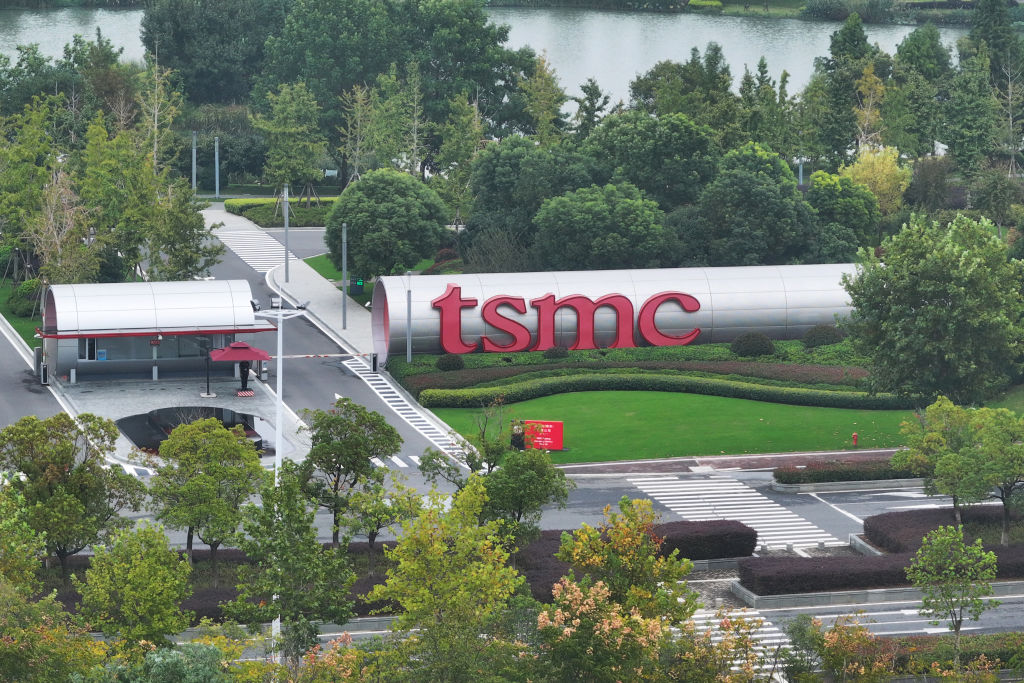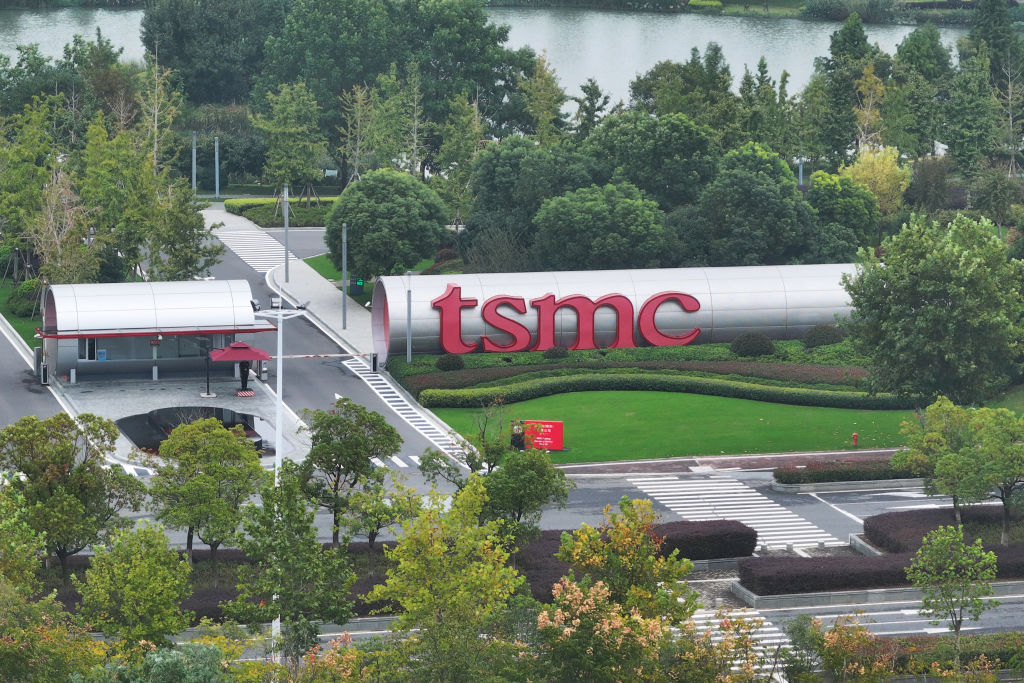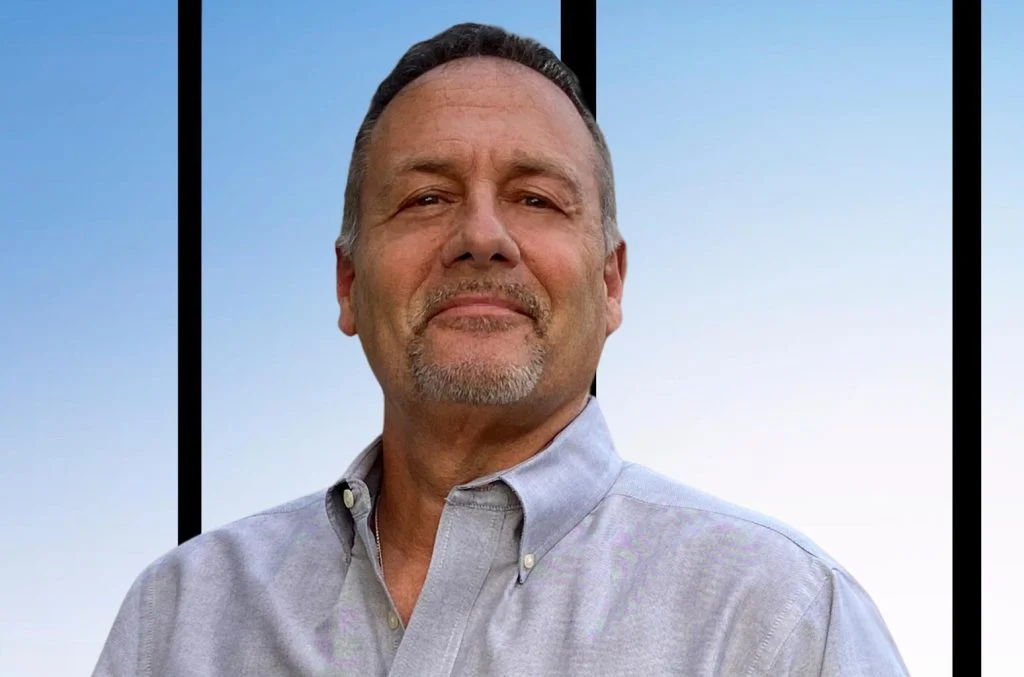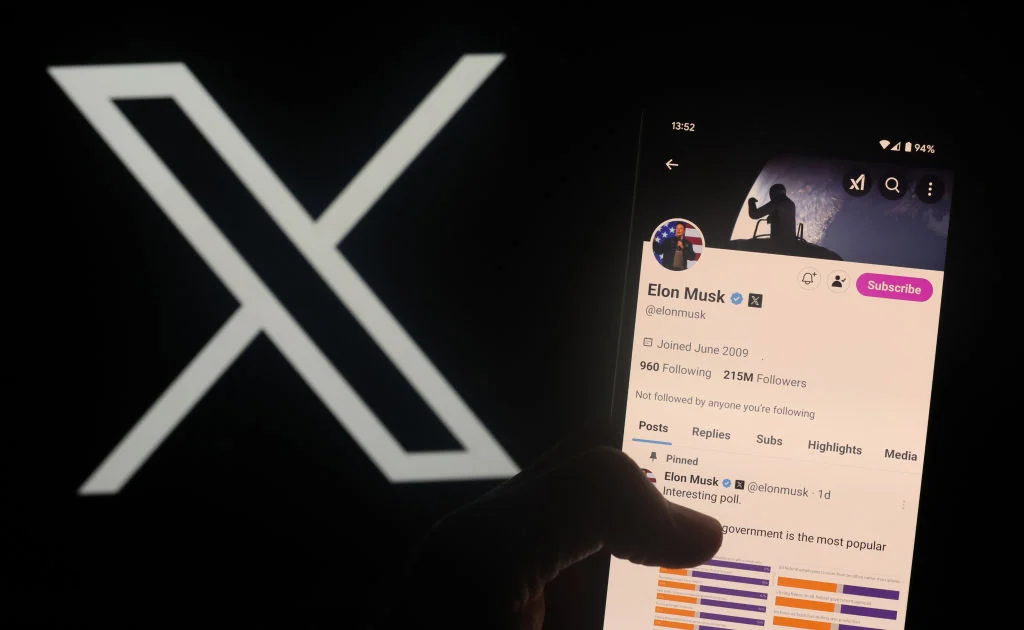tech
Page: 16
HipHopWired Featured Video
TSMC, the world’s leading chip manufacturer, has approached several United States-based chip designers for a new joint venture to oversee operations for Intel factories, according to a new report. If the deal goes through, TSMC, which is based in Taiwan, will take over half of Intel’s foundry division, reportedly at the request of President Donald Trump’s administration.
Reuters revealed that, via sources, TSMC has approached Nvidia, AMD, Broadcom, and Qualcomm about a potential joint venture to run half of Intel’s foundry division, which creates a variety of chips made for specific customer needs. Intel’s stock price, which has been nosediving since last year, saw a spike in the market on Wednesday (March 12) after the Reuters report went wide.
In the ongoing tech wars surrounding the rapid development of AI tools and the items needed to run the massive computing demands of said programs, Intel’s stake in the chipmaking game was widely report to be slipping and reports point to the fact other chipmakers have far outpaced the one-time giant of the space, especially Nvidia in this case.
The outlet also learned via sources that the Trump administration formally requested that TSMC lend its expertise to rescue Intel from floundering further as President Donald Trump and his “America First” agenda continue to take shape across the nation. The prevailing thought is that this would be a beneficial partnership, albeit a reluctant one, as Trump has been clear in wanting the United States to be a leader in manufacturing its tech goods and passing premiums on other countries via tariffs and the like.
The deal would give TSMC a 50% stake and no more than that, but it would need to be approved by President Trump. The outlet adds that, via a quartet of sources, the deal would face some requisite challenges as TSMC has vastly different operating rules than Intel.
—
Photo: VCG / Getty
HipHopWired Featured Video
TSMC, the world’s leading chip manufacturer, has approached several United States-based chip designers for a new joint venture to oversee operations for Intel factories, according to a new report. If the deal goes through, TSMC, which is based in Taiwan, will take over half of Intel’s foundry division, reportedly at the request of President Donald Trump’s administration.
Reuters revealed that, via sources, TSMC has approached Nvidia, AMD, Broadcom, and Qualcomm about a potential joint venture to run half of Intel’s foundry division, which creates a variety of chips made for specific customer needs. Intel’s stock price, which has been nosediving since last year, saw a spike in the market on Wednesday (March 12) after the Reuters report went wide.
In the ongoing tech wars surrounding the rapid development of AI tools and the items needed to run the massive computing demands of said programs, Intel’s stake in the chipmaking game was widely report to be slipping and reports point to the fact other chipmakers have far outpaced the one-time giant of the space, especially Nvidia in this case.
The outlet also learned via sources that the Trump administration formally requested that TSMC lend its expertise to rescue Intel from floundering further as President Donald Trump and his “America First” agenda continue to take shape across the nation. The prevailing thought is that this would be a beneficial partnership, albeit a reluctant one, as Trump has been clear in wanting the United States to be a leader in manufacturing its tech goods and passing premiums on other countries via tariffs and the like.
The deal would give TSMC a 50% stake and no more than that, but it would need to be approved by President Trump. The outlet adds that, via a quartet of sources, the deal would face some requisite challenges as TSMC has vastly different operating rules than Intel.
—
Photo: VCG / Getty
HipHopWired Featured Video
CLOSE
Source: Kojima Productions / Debra Wilson / Death Stranding 2: On The Beach
Debra Wilson is a legend in the world of video games, and gamers are letting one user on X, formerly Twitter, know that after he complained about the actress’s appearance in Death Stranding 2: On The Beach.
When you speak of Debra Wilson in the video game space, make sure you respect her name. Wilson’s likeness and voice have been credited in roughly 111 games over the years, including the Star Wars Jedi franchise, Call of Duty: Modern Warfare III, Diablo IV, and Avowed.
You can head here to check her entire resume.
Most recently, it was revealed during Hideo Kojima’s latest, and epic trailer for Death Stranding 2: On The Beach that Wilson would be in the game playing the role of “Doctor,” who has two right hands, in what is the most Kojima twist ever.
Following the reveal, while everyone was left excited for Kojima’s next video game magna opus, one person complained about Wilson being in the game.
One User On X Is Tired of Seeing Debra Wilson’s “Very Distinctive Face”
A user on the X who goes by the handle @Endymion shared a screenshot of Wilson from the trailer with the caption, “Oh my god enough of this woman being in everything man.”
He wasn’t done making an a** out of himself adding in a follow-up post, “And before anyone says anything else, she can act just fine I’m just tired of seeing her very distinctive face in everything.”
He continued, “Every time her face shows up in some game it’s a legit jump scare to me. And western devs will say, “it’s hard to translate a female actors face to a game”. And yet every fcking time this lady is in something every studio seems to get her likeness to a T. These mfers are gaslighting me bro I swear to god.”
Very interesting comments, especially the ones about Wilson’s looks.
Gamers Accuse The Debra Wilson Hater of Being Racist
Anyway, gamers formed like Voltron to take down the hater, making very salient points about actors/actresses who work in the video game industry and basically accusing him of racism for his comments about Wilson’s face.
“Very distinctive face.” Just fucking say it dude. It’s not like Elon will ban you for it anymore,” one user on X wrote in response to his post.
Another user on X wrote, “There’s no way you have an issue with Debra Wilson of all people. Why are you tired of seeing her face? What’s the real problem? I want a legit answer, none of that grifter bullshit you’re peddling either.”
Then there is the fact that Death Stranding 2: On The Beach also features Troy Baker, who happens to be in more games than Wilson. But @EndySimon wasn’t complaining about that. We wonder why he had nothing to say on that matter.
“Ten minute trailer and this dipshit finds the few seconds with a Black woman to complain about when Troy fucking Baker is ALSO in this trailer and he’s in WAY more games than Debra Are you starting to see the grift yet?,” another post on X read.
Debra Wilson will be protected at all costs.
You can see more reactions in the gallery below.

HipHopWired Featured Video
CLOSE
Source: Kojima Productions / Debra Wilson / Death Stranding 2: On The Beach
Debra Wilson is a legend in the world of video games, and gamers are letting one user on X, formerly Twitter, know that after he complained about the actress’s appearance in Death Stranding 2: On The Beach.
When you speak of Debra Wilson in the video game space, make sure you respect her name. Wilson’s likeness and voice have been credited in roughly 111 games over the years, including the Star Wars Jedi franchise, Call of Duty: Modern Warfare III, Diablo IV, and Avowed.
You can head here to check her entire resume.
Most recently, it was revealed during Hideo Kojima’s latest, and epic trailer for Death Stranding 2: On The Beach that Wilson would be in the game playing the role of “Doctor,” who has two right hands, in what is the most Kojima twist ever.
Following the reveal, while everyone was left excited for Kojima’s next video game magna opus, one person complained about Wilson being in the game.
One User On X Is Tired of Seeing Debra Wilson’s “Very Distinctive Face”
A user on the X who goes by the handle @Endymion shared a screenshot of Wilson from the trailer with the caption, “Oh my god enough of this woman being in everything man.”
He wasn’t done making an a** out of himself adding in a follow-up post, “And before anyone says anything else, she can act just fine I’m just tired of seeing her very distinctive face in everything.”
He continued, “Every time her face shows up in some game it’s a legit jump scare to me. And western devs will say, “it’s hard to translate a female actors face to a game”. And yet every fcking time this lady is in something every studio seems to get her likeness to a T. These mfers are gaslighting me bro I swear to god.”
Very interesting comments, especially the ones about Wilson’s looks.
Gamers Accuse The Debra Wilson Hater of Being Racist
Anyway, gamers formed like Voltron to take down the hater, making very salient points about actors/actresses who work in the video game industry and basically accusing him of racism for his comments about Wilson’s face.
“Very distinctive face.” Just fucking say it dude. It’s not like Elon will ban you for it anymore,” one user on X wrote in response to his post.
Another user on X wrote, “There’s no way you have an issue with Debra Wilson of all people. Why are you tired of seeing her face? What’s the real problem? I want a legit answer, none of that grifter bullshit you’re peddling either.”
Then there is the fact that Death Stranding 2: On The Beach also features Troy Baker, who happens to be in more games than Wilson. But @EndySimon wasn’t complaining about that. We wonder why he had nothing to say on that matter.
“Ten minute trailer and this dipshit finds the few seconds with a Black woman to complain about when Troy fucking Baker is ALSO in this trailer and he’s in WAY more games than Debra Are you starting to see the grift yet?,” another post on X read.
Debra Wilson will be protected at all costs.
You can see more reactions in the gallery below.
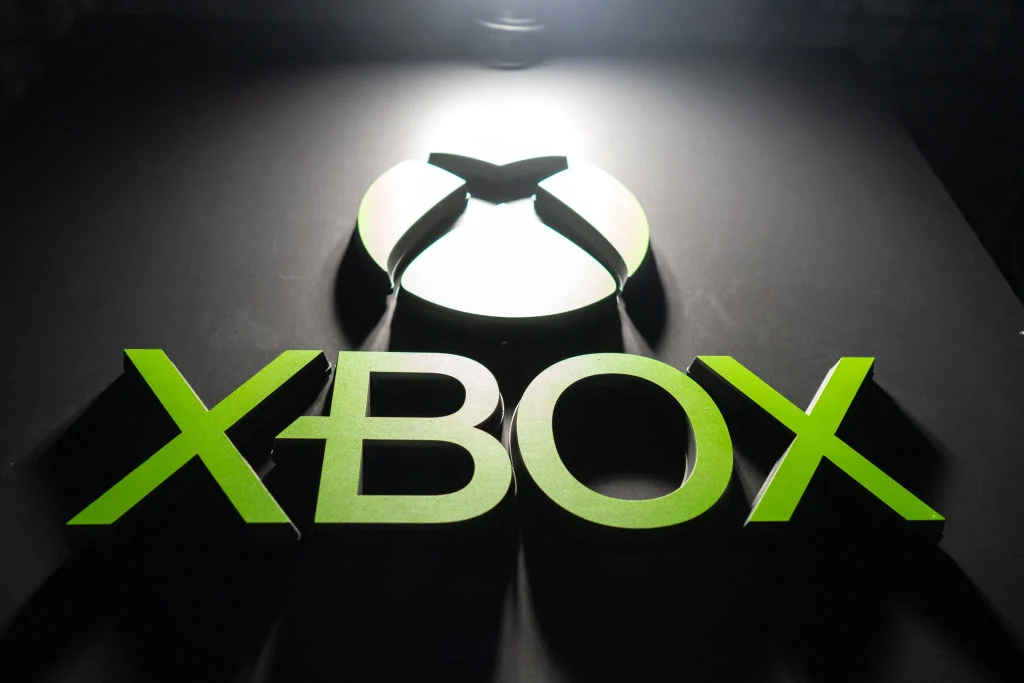
HipHopWired Featured Video
Source: Tomohiro Ohsumi / Getty / Xbox
Even though Xbox is not doing so well in the console market this generation, don’t count out the Microsoft gaming division just yet, they still have something to offer.
Windows Central’s Jez Cordon exclusively reports that Microsoft plans to launch the next-gen Xbox console in 2027 and an Xbox-branded handheld sometime in 2025.
According to the website, a partner PC gaming handheld codenamed Keenan is currently in the works for late 2025 while a next-gen successor for the Xbox Series X and S consoles is two years away.
IGN reports that Microsoft has yet to comment on the report, but company executives have been dropping breadcrumbs about Xbox’s plans in numerous interviews.
Per IGN:
Microsoft is yet to comment on the report, however its gaming executives have spoken publicly about both devices in vague terms across various interviews. In January, Jason Ronald, Microsoft’s VP of ‘Next Generation,’ told The Verge that the company plans to combine Xbox and Windows experiences together for PC gaming handhelds made by original equipment manufacturers (OEMs), otherwise known as third-party hardware manufacturers. Existing PC gaming OEMs include Asus, Lenovo, and Razer. Keenan does not relate to a first-party Xbox handheld, which Microsoft gaming boss Phil Spencer recently indicated is years away.
As for the next-gen Xbox, Windows Central said it is fully greenlit by Microsoft CEO Satya Nadella. The console is reportedly a premium successor to the Xbox Series X, and this console, alongside a first-party Xbox gaming handheld and new controllers, are set to round out Microsoft’s console offering in 2027. The suggestion, then, is Microsoft does not plan to release a direct next-gen successor to the less powerful Xbox Series S. Perhaps Microsoft expects its handheld to occupy the cheaper, less powerful console space.
According to Windows Central, the next Xbox will be more like a PC and will support third-party storefronts like Steam, the Epic Games Store, and GOG. Backwards compatibility, a popular feature, will also return.
We are curious to see this handheld. There is also that other console that leaked, Brooklin, which is still up in the air, with some wondering if Microsoft canceled it.
Only time will tell regarding what the gaming company has up its sleeve as it concedes this gaming generation, and looks forward to the future.
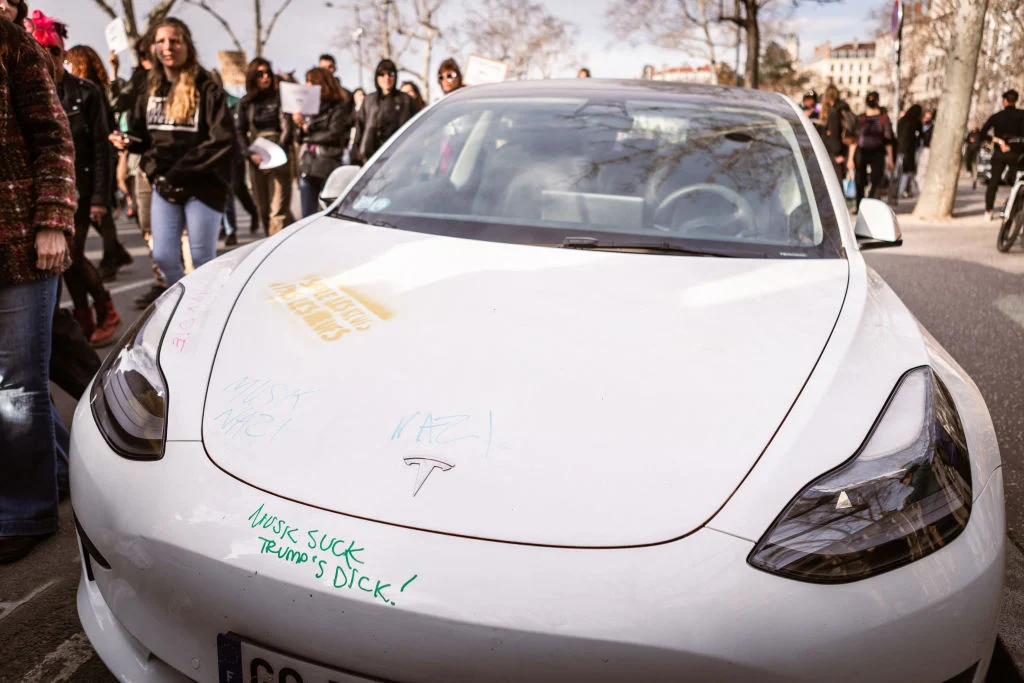
HipHopWired Featured Video
CLOSE
Source: Pacific Press / Getty / Tesla / Elon Musk / Donald Trump
Donald Trump and his MAGA cult are now all-in on electric cars, specifically, Elon Musk’s crappy Tesla vehicles after the company’s stock continues to take a hit, and sales stall due to him Musk hitching his wagon to the Trump train and being a douche.
Orange Mussolini and his loyal supporters are vowing to buy the once popular, but extremely poorly designed electric car in response to protests of the EV company across the nation in response to Musk’s DOGE ruining federal workers’ lives following unjust mass layoffs in the name of reducing government spending.
Taking to his favorite megaphone, Truth Social, Trump announced he will purchase a Tesla vehicle to show confidence in Musk and his company while incorrectly calling boycotts of Tesla illegal.
Per CNBC:
“I’m going to buy a brand new Tesla tomorrow morning as a show of confidence and support for Elon Musk, a truly great American,” Trump wrote in a post published early Tuesday morning on Truth Social.
Trump said “radical left lunatics” are “illegally and collusively” boycotting Tesla, which the president described as one of the best automakers in the world. This action, Trump said, was meant as an attack on Musk and what he stands for.
https://x.com/atrupar/status/1899520772139372904
For those who believe everything Trump says, boycotting companies is not illegal. In 1982, the Supreme Court ruled that the First Amendment protects American citizens’ rights to protest private businesses.
Elon Musk’s Businesses Are Suffering Globally
Source: ELSA BIYICK / Getty
Anyway, in a recent interview, Musk himself acknowledged that the self-inflicted harm to his businesses was leading to him running them “with great difficulty.” This wouldn’t have been the case if he hadn’t gotten into politics, specifically giving Donald Trump ridiculous amounts of money to ensure his return to the White House.
https://x.com/MirageWL8/status/1898870276315927032
Musk rallied against the people who were buying his vehicles, opting to side with the folks who clowned his cars in the first place because electric vehicles can compare to good old fashioned gasoline-powered cars that ruin the environment and cause climate change that they they constantly deem a hoax, even thought they have seen their houses burn down or be washed away in unprecedented natural disasters.
MAGA Republicans Love Tesla Electric Vehicles All of A Sudden
Now, as we are in the upside down, in an attempt to “own the libs,” following Cheeto Jesus’ footsteps, they are claiming they are getting Teslas to help Musk out and stand with him as he loses billions.
https://x.com/rolandsmartin/status/1899505153239101713
Bruh, the stupidity mixed with hypocrisy is off the chains.
You can see more reactions in the gallery below.
HipHopWired Featured Video
CLOSE
Source: Alex Wong / Getty / Donald Trump
Donald Trump is on a quest to make America broke again, oops we mean “wealthy again” through tariffs, but he keeps ignoring what economists are trying to get through his thick orange head, regular Americans will feel the pain through their wallets.
Felon 47, for whatever reason, is obsessed with tariffs and believes they are a great tool against our three main trade partners, Canada, China, and Mexico because he feels we are being “ripped off,” in the trade deal he negotiated during his first term.
Trump didn’t waste any time imposing a 25% tariff on Canada and Mexico, but he pulled some back after the stock market reacted negatively. As of this writing, the markets continue to tank due to his bonehead decision.
The Orange Menace imposed an additional 10% tariff on goods from China on top of the 10% tariff he imposed on the country in February. Analysts believe that Trump’s new round of tariffs will make video games and other electronics more expensive and push publishers to abandon physical releases.
https://x.com/ZhugeEX/status/1896897066888278262
GameRant reports that Trump’s tariffs on Mexico could make consoles like the Nintendo Switch 2 more expensive and have other negative implications.
Per GameRant:
Industry experts are particularly concerned about the ripple effects on the video games market. Mat Piscatella, Circana Executive Director and Video Game Industry Analyst, predicts a “sharp downtick” in the number of physical game releases in the United States. Much of the production infrastructure for these games is based in Mexico, and a 25% tariff would disrupt supply chains, increasing manufacturing costs. As a result, retailers may raise prices on both physical and digital games to maintain price parity. “If physical game prices go up, digital games’ MSRPs will likely follow,” Piscatella noted in a recent discussion on Bluesky. He expressed doubts about any positive outcomes for the physical game market in the near future.
Bruh.
During Trump’s first disastrous presidency, the video game industry convinced him to chill and exclude them in the tariffs he placed on Chinese goods, but he has not extended the same grace.
The ESA warned that Trump’s tariffs could significantly harm the video game industry. There are fears that Project 2025, the extreme right-wing playbook that Trump claims he knows nothing about, could somehow interfere with the release of Grand Theft Auto 6 because the language in it suggests possible censorship of games like GTA 6 due to their graphic and violent nature.
This nightmare is just beginning. Brace yourselves, it’s going to be a long four years. You can see reactions in the gallery below.
OpenPlay, the back-office technology company that Universal Music, BMG and others use to manage their catalogs, said on Tuesday it hired former Dubset Media executive Bob Barbiere to lead a new service offering.
Called OpenPlay Reach, the new offering will launch in the second quarter this year and it aims to give its thousands of label and publisher clients more control over the distribution and monetization of their catalogs, and delivery of tracks to the streaming platforms, the company says.
With more than 100,000 new tracks uploaded to music platforms every day, and video assets with music components becoming more powerful generators of streaming revenue than in recent years, managing the thousands and millions of songs major music companies and publishers have in their catalogs has never been more complicated.
Trending on Billboard
At the same time, record labels and publishers are looking to automate back-office functions to save money and focus staff resources on finding new artists and talent.
“[OpenPlay] Reach is both well-conceived and uniquely timed,” Barbiere said in a statement. “Labels and publishers are not only trying to keep up with the growing use of their catalog and rapidly expanding number of consumer touch points, they are being fiscally challenged to get more accomplished with less. While OpenPlay now powers the back office of thousands of labels and publishers, it’s been one of music’s best kept secrets. With the introduction of Reach, it will not be a secret much longer.”
OpenPlay says it not only helps clients house their catalogs, but also distribute their songs. The OpenPlay dashboard shows effectively everything Spotify, Apple Music and other digital service providers require: rights, audio information, secondary contributors, everything associated with an individual ISRC or composition, basic publishing information, lyrics, expanded metadata and more. OpenPlay’s tools also provide distribution services like creating secure, trackable playlists to send promoters, a tool that automatically creates electronic press kits, and a dashboard for label groups to approve or reject releases from across label groups.
Its clients include all the majors — Universal Music Group, Sony Music Entertainment, Warner Music Group — as well as BMG, Concord, HYBE, Netflix, Disney Music, Big Machine, MNRK and others, according to the company.
A veteran of music technology and digital rights clearances, Barbiere previously co-founded ClearBeats, a startup aimed at solving hassles in licensing derivative works, and was an executive at Pex, which tracks music usage and modified audio. He joins OpenPlay as executive vice president and general manager of OpenPlay Reach.
OpenPlay co-founder and chief client officer Edward Ginis says the expanded new tools further “our vision to give rights owners the independence to take asset management decisions with complete control. Bob Barbiere’s leadership will be key in driving this expansion forward and ensuring that content can be managed, delivered and monetized at scale.”
New York University (NYU) and Sony Corporation have announced the launch of a new institute at the school through which students will have access to Sony audio technology, be given real-world opportunities and more.
Formally dubbed the Sony Audio Institute for Music Business and Technology, the institute will be based within NYU’s Steinhardt School of Culture, Education, and Human Development, whose leadership and faculty co-created it alongside Sony’s personal entertainment business. Through the partnership, students enrolled in Steinhardt’s music business and music technology degree programs will have access to Sony audio technology, including 360 Reality Audio and the 360 Virtual Mixing Environment — both of which will be outfitted in the newly-named Sony Audio Institute Studio at NYU’s Brooklyn campus.
NYU’s Music and Audio Research Lab (MARL) will also receive input from Sony researchers and engineers in conducting its research on music and audio technologies. Current areas of focus at MARL include music and auditory perception and cognition; machine listening and music information retrieval; spatial and immersive audio; and music in the health and rehabilitation sciences.
Trending on Billboard
The institute will additionally offer workshops, internships and special events to students, while NYU venues “will present student-driven programming that bridges the gap between academic learning and real-world industry experiences,” offering students “a platform for hands-on innovation and collaboration,” according to a press release.
Through the institute, NYU will also establish a scholarship program to assist undergraduate, graduate and doctoral students at NYU Steinhardt “who demonstrate financial need and academic merit with a preference for students who have an interest in pursuing research or careers in the audio industry,” the release adds.
The institute, which has been established for an initial 10-year term, is set to open this spring, with NYU Steinhardt clinical professor and music industry veteran Larry S. Miller serving as inaugural director. Miller will also continue serving as the director of the music business program at NYU Steinhardt until fall 2025.
“It is an honor to establish this collaboration with New York University, one of the world’s premier music schools, renowned for its long-standing legacy of producing some of the audio industry’s top talent,” said Kimio Maki, president/CEO at Sony Corporation, in a statement. “Through this collaboration, we look forward to inspiring creativity for the next generation of music creators and witness how their artistry will influence the music industry for years to come.”
NYU president Linda G. Mills added, “We are excited and grateful that Sony has chosen NYU Steinhardt to collaborate on this important initiative, which will create new opportunities for our amazingly talented students through scholarships, internships, research fellowships, and other unrivaled experiences. This forward-looking initiative will not only create new opportunities for creative expression, it will give our students a competitive advantage in a rapidly changing industry. I’d like to thank the team at Sony and everyone at NYU who worked tirelessly to make this dream a reality.”
HipHopWired Featured Video
CLOSE
Source: Nathan Stirk / Getty / X
Elon Musk is too busy firing and laying off government workers to pay attention to his crappy platform X because it was running like absolute crap on Monday.
X, formerly known as Twitter, has been down for thousands of UK and US users for a good portion of the day. Outage tracking website Downdetector.com reported more than 21,000 incidents of people in the US reporting issues with the platform during the first incident and 10,800 in the UK.
The platform reportedly returned to normal around 2:30 a.m. PT, so the outage lasted about 45 minutes in total.
X wasn’t out of the woods yet. Later in the day, around 6:45 a.m. PT, Downdetector.com reported 8,000 incidents, and the platform eventually went down again minutes later.
The last time X suffered a significant outage like this was in August 2024, with 66% of users reporting issues with the app, website, and server connections.
Since Musk reluctantly acquired the platform for $44 billion and laid off about 80% of its employees, X has been running terribly.
According to the Tesla chief, his company suffered a massive cyberattack.
“There was (still is) a massive cyberattack against 𝕏. We get attacked every day, but this was done with a lot of resources. Either a large, coordinated group and/or a country is involved,” Musk wrote on his personal X account.
Right now, Musk’s time and attention have been on his DOGE (Department of Government Efficiency), which has been under fire for firing thousands of government employees and shutting down government agencies like USAID as part of the Trunp administration’s efforts to cut government spending and waste. This has been nothing short of the purest of jigs.
X Users Always Deliver The Jokes When The Platform Suffers An Outage
As with every time X goes down, the reactions from users are always hilarious.
“When you think Twitter is down but you can’t go on Twitter to see if #TwitterDown is trending because Twitter is down,” one user on X wrote alongside a GIF of Chandler from the show Friends looking sad while looking out of a window.
https://x.com/jjeonghyeons/status/1899148534735147184
Currently, the platform is up and running again, but we won’t be shocked if it goes down again. You can see more reactions in the gallery below.

 State Champ Radio
State Champ Radio 